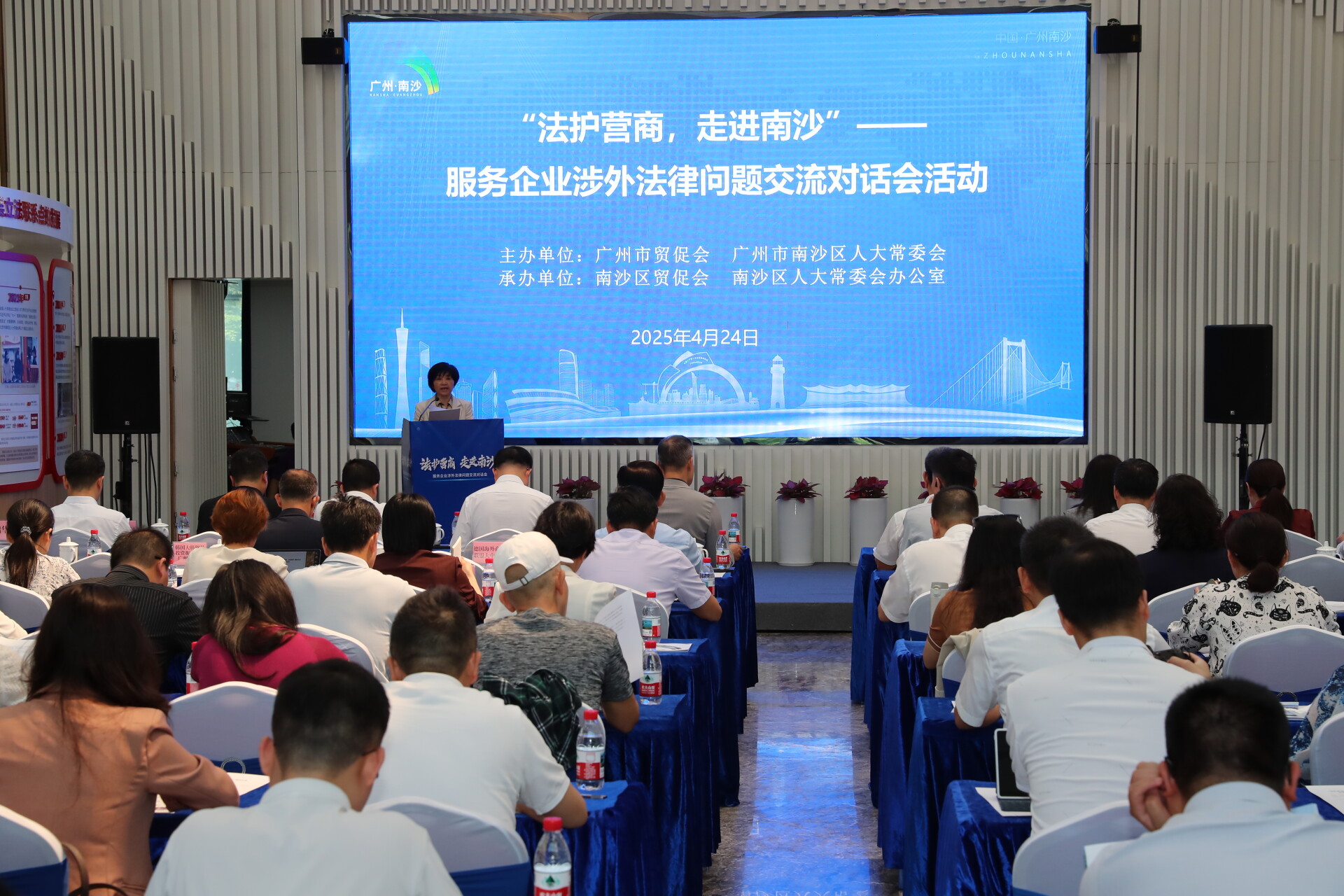China's Nansha District tackles trade tensions with legal innovation

A legal policy dialogue featuring Nansha's law-based business environment is held at Nansha District, Guangzhou, the capital of South China's Guangdong Province, on April 24, 2025. (Photo provided to GDToday)
As China intensifies efforts to attract foreign investment and navigate shifting global trade dynamics, Nansha District of Guangzhou—home to Guangdong, China's largest provincial economy—is positioning itself as a hub for legal reform and practical solutions tailored to international business.
On April 24, the dialogue brought together over 100 companies, consular officials, and trade representatives from countries including Bangladesh, Ecuador, Germany, South Korea, and Switzerland. The event was jointly hosted by the Standing Committee of the Nansha District People's Congress and the China Council for the Promotion of International Trade Guangzhou Committee.
Held at the national-level grassroots legislative contact station in Nansha District—an innovative platform linking public input to national lawmaking—the forum addressed pressing challenges for foreign and export-oriented businesses, including U.S. "reciprocal tariffs," overseas compliance risks, and strategies for entering the Mexican market.
In response to rising trade protectionism, particularly the U.S. push for "reciprocal tariffs," legal experts advised Chinese exporters to diversify their supply chains. One suggested model is Haier Smart Home, which has established production centers in Mexico to serve North American markets. By spreading tariff costs among suppliers and adopting a regional manufacturing strategy, firms can mitigate geopolitical uncertainties.
Mexico was identified as a critical springboard for Chinese companies seeking to access the Americas. Experts highlighted the United States–Mexico–Canada Agreement (USMCA) as a vital framework, encouraging businesses to combine technology exports with localized production to better integrate into regional supply chains. Case studies included companies like Hisense and Man Wah Holdings, which have successfully adopted this approach.
Overseas compliance remains a top concern. Speakers urged businesses to implement a full-cycle risk control system encompassing pre-warning, incident response, and post-crisis review.
They also emphasized the importance of leveraging trade frameworks such as the Regional Comprehensive Economic Partnership (RCEP) and the Comprehensive and Progressive Agreement for Trans-Pacific Partnership (CPTPP) to reduce legal and tariff barriers.
The forum facilitated discussions on issues such as export tax rebates, cross-border data flows, and intellectual property protection. Nansha officials pledged to enhance the district's legal support services, including tailored compliance training and in-depth analysis of international tariff regimes.
A core feature of the event was a showcase of Nansha's grassroots legislative contact station, one of several established by China's National People's Congress (NPC) nationwide to promote the practice of whole-process people's democracy.
Since its establishment, the Nansha site has collected over 400 suggestions on foreign-related legislation, serving as a bridge between enterprise voices and national lawmaking.
Some grassroots recommendations have already influenced Guangdong's provincial legislation, including policies supporting youth employment from Hong Kong and Macao and the import of medical devices from these two special administrative regions.
According to Chen Ning, director of the Standing Committee of the Nansha District People's Congress, such legislative contact stations provide foreign businesses with a way to engage in China's lawmaking and offer insight into how democratic consultation functions at the local level.
Foreign attendees echoed this view. "This kind of bottom-up legislative mechanism gives foreign investors greater predictability," said Chen Yongfeng, Economic Officer at the Consulate General of Switzerland in Guangzhou. "It shows that grassroots concerns are being heard at the top."
The district's legal infrastructure supports Nansha's ambition to become a regional hub for business-friendly regulation and legal innovation within the Guangdong-Hong Kong-Macao Greater Bay Area.
A recent resolution passed by the Standing Committee of the Nansha District People's Congress outlined 91 innovative measures aimed at streamlining business services—from administrative approvals to legal support and enforcement oversight.
As global trade tensions persist and regulatory expectations grow more complex, Nansha seeks to enhance its appeal to international businesses through increased legal transparency, targeted institutional reforms, and ongoing dialogue with foreign stakeholders.
Copyright © Foreign Affairs Office of Guangzhou Municipal Government,
Hong Kong and Macao Affairs Office of Guangzhou Municipal Government All rights reserved.
PRESENTED BY GDTODAY.
粤ICP备09176539号-5
![]() 粤公网安备44010402003415号
粤公网安备44010402003415号















